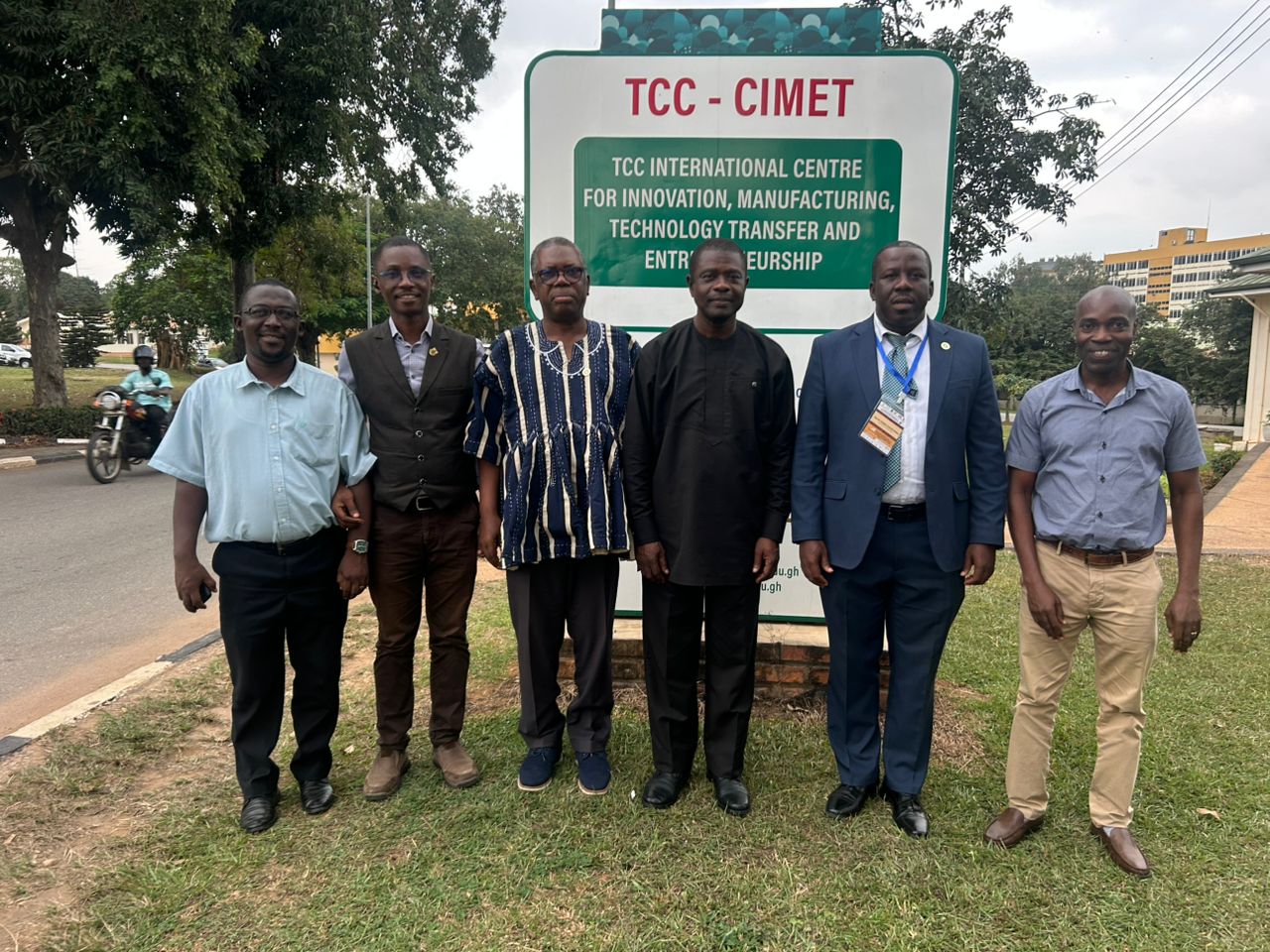In preparation for the RENABUMA workshop, the TCC International Centre for Manufacturing, Technology Transfer, and Entrepreneurship (TCC-CIMET) welcomed the Ghana Institution of Engineering and the Centre for Settlement Studies, KNUST.
The meeting aimed to establish collaboration ahead of the RENABUMA project.
Speaking at the meeting the president of the Ghana Institution of Engineering, Ing. Ludwig Hesse explained that the project offers Ghana an opportunity to reduce costs and create sustainable buildings amid increasing urbanization. “The project intends to use materials that are common to us, which are also natural, combined with technology to make them modern. When these are combined, there is value for us. We are fortunate to be moving into urbanization.
Others are ahead of us, but if we can take advantage of these opportunities, we can reduce costs, improve resilience and sustainability, and lower our carbon footprints,” he said. He also emphasized the importance of sustainable collaboration. “When we collaborate, it must be in a way that is sustainable so that when we start, we can finish. We begin at the research level, move to prototype development, then testing, and finally upscaling.
These processes take time,” he added. The Reinterpretating Natural Building Materials (RENABUMA) Project seeks to design and prototype affordable, low-carbon, and high-quality housing systems for Ghana’s urban context by combining renewable local materials with advanced digital construction technologies.
The project focuses on bio-based resources and digital fabrication to advance Sustainable Development Goals (SDGs) 7, 8, 9, 11, 12, and 13. Prof. Owusu Amponsah, Head of the Centre for Settlement Studies, highlighted the project as an opportunity to build on past initiatives: “The Centre anticipated the carbon-neutral and zero-carbon agenda as early as the 1960s, designing Tech Blocks using local laterite and constructing demonstration buildings that are still in use today by students and staff.
While some sites, including those in Tema and Nkareye, have been neglected, this is an important chance to revisit and enhance indigenous building technologies. By building on these early innovations, the Centre aims to showcase sustainable solutions that contribute to achieving modern carbon-neutral objectives,” he said.
The RENABUMA Workshop is a collaborative, hands-on platform where academia, industry, and communities come together to co-create solutions. It is scheduled to take place from 1st to 23rd September. Prof. Francis Davis, Director-General of TCC-CIMET, emphasized the wider applicability of the project. “We do not need to target only rural communities for this project but also urban settlers.
If we can demonstrate that they can use bricks and canes to create beautiful designs or show them that these materials are strong enough for buildings, they will incorporate them into their finishing. And the beauty again is that these materials are localized,” he said.
The RENABUMA project is led by TCC-CIMET and the Karlsruhe Institute of Technology (KIT), with support from the KNUST Centre for Settlement Studies, Department of Architecture, Department of Construction Technology and Management, KNUST College of Engineering, and KNUST College of Science, as well as the Ghana Institution of Engineering (GhIE), the International Bamboo and Rattan Organization (INBAR), Mobius Architecture, SCiMLAB, and Professur Digital Design and Fabrication (DDF) Dr. Ing. Alexander Boake Marful, Principal Investigator for the RENABUMA project, highlighted the potential of these buildings in prestigious locations: “Today, if you want a thatch and mud house, you go to Royal Senchi, which is expensive, showing that these traditional structures have largely become associated with the wealthy. It is now up to us to focus on key sites such as Manhyia, Jubilee House, and other important places, and demonstrate that these buildings can be preserved and appreciated in exclusive areas,” he said.
Also present at the meeting were the Vice President of the Ghana Institution of Engineering, Ing. Dr. Patrick Amoah Bekoe, and Dr. Eric Simpeh from the Centre for Settlement Studies, KNUST.


















